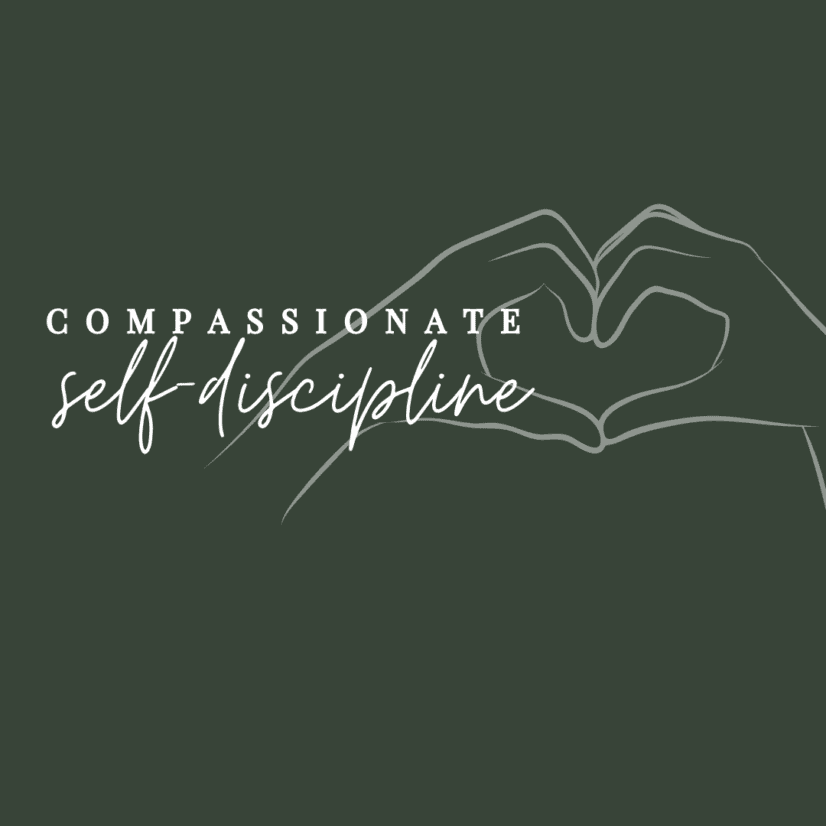Self-compassion and discipline.
Many people often view these two concepts as opposing ideas that require a choice between them. The fear commonly expressed is that giving oneself compassion and kindness will hinder productivity and achievement. We think, “My life is going to be a free-for-all, I’ll never reach my goals. I will over-indulge myself in every way.”
We can easily feel this way, especially when shame or punishment frequently motivates us. Dr. Maya Shetreat says, “If being hard on yourself worked, it would have worked by now.” Read that again, in the first person. “If being hard on myself worked, it would have worked by now.” When reading that statement, what did you notice? You may have noticed some pushback and resistance. Maybe you noticed relief–a weight off of your shoulders, a possibility of something different.
Self-compassion and discipline can go hand in hand.
When we are pursuing discipline out of a place of condemnation, shame, and punishment, there is no self-compassion. Self-compassion is allowing ourselves to acknowledge when something is difficult, validate that experience, and offer ourselves care and encouragement to stay the course. The reality is, over-indulgence, and its partner on the opposite end of the spectrum, rigid restriction, are rarely truly caring for ourselves. Behaving out of those spaces may provide us with a sense of familiarity, comfort, or control, but rarely true care. When we decide to stay with something and practice discipline out of believing we are worthy of the result (i.e. worthy of healthy relationships, a healthy body, a fulfilling career), we are motivated by care. This kind of discipline may feel foreign at first. But, you may also find it feels much more life-giving than consistently needing to punish and shame ourselves into acceptance.
If you are wanting to start your journey to self-compassionate discipline, here are a few starting points.
- Check your negative self talk. As we begin to notice the things we are telling ourselves, this awareness allows us the ability to begin changing it.
- Think about how you would respond to a friend–would you speak to them how you just spoke to yourself?
- Consider your “why”–why is doing the work to pursue this goal important to you? Is your why coming from a place of shame or punishment, or is it from care and belief in yourself?
Written by: GROW Staff

